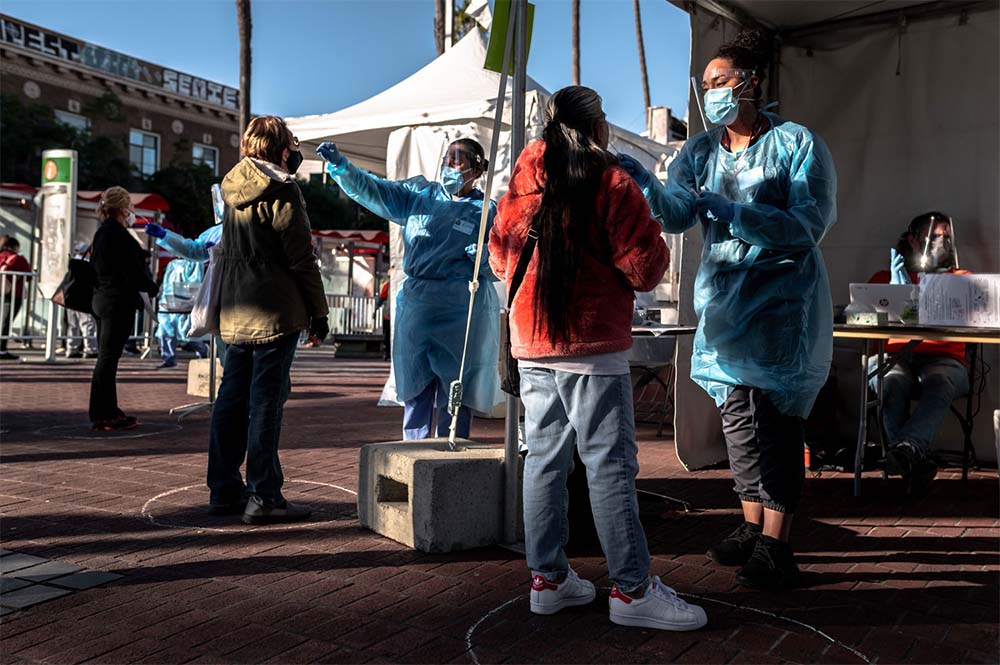There will also be food assistance and help for the unemployed
by FT
Internet services
In a time when the covid-19 pandemic is raging, San Francisco city officials, Mission Neighborhood Centers (MNC) workers and city community leaders inaugurated a new social assistance center and medical facility in the Bayview Hunters Point neighborhood that will provide access to food, housing and health services and help the unemployed workforce during this coronavirus scourge.
A populous neighborhood that borders the bay to the southeast of the city, Bayview has a majority population of color with Latinos making up more than 20% of its inhabitants. The neighborhood is being hard hit by the pandemic. As of December 6, 2020, the Department of Public Health reported that for every 10,000 residents of Bayview there have been 531.6 cases of covid-19. Latinos represent 15% of the city’s population but, disproportionately, suffer from the highest rate of contagion than any other group: 45.5% of positive cases.
In a virtual press conference, leaders also denounced that communities of color are the most affected by the pandemic, which is why the new center will provide medical assistance and covid-19 tests. The initiative to create these centers in places where communities of color reside began after the successful creation of a similar center in the Barrio de La Misión.
San Francisco Mayor London Breed said the center was made possible in part because of $28.5 million the city allocated to grassroots organizations that work with the Latino community.
“This center will help community members to have access to food and other basic goods they need. It will be a trusted place for the community to turn to when they need help,” Breed said.
David Chiu, representative of District 17 (eastern part of the city) in the State Assembly, said that there is racism in the structures of society that worsens the situation. “Our communities of color, particularly the Latino community and the African American community have been attacked by this pandemic, by this recession, and quite frankly by the legacy of structural racism. Covid-19 has revealed and called our attention to all these social injustices,” he said.
Chiu added that a baby born in Bayview is twice as likely to be born prematurely than one born in another neighborhood of the city, like Russian Hill for example. These infants are “seven times more likely to be born into poverty and live 14 years less than a baby born six miles away… This is where the challenge of structural racism, poverty and the pandemic leads us,” he asserted.
The representative also warned of a possible wave of evictions that could hit the city and state hard. “We had a moratorium that has halted evictions in the city and in the state but if we don’t pass new laws by January 31…there are literally two million Californians, many of them members of our community, at risk of eviction,” he said. Chiu.
Santiago Ruiz, general director and founder of Centros Vecinales de La Misión (MNC) thanked the municipal officials and said that the city’s response was “affirmative, phenomenal and diligent”. Ruiz also reported that there are individuals in need who were applying for affordable housing in the city but are being “denied that opportunity because they don’t qualify because they don’t have a job due to the pandemic… It’s sad to think that those people we represent can’t apply because They are unemployed.” In a dramatic appeal, Ruiz asked the representatives to cancel this requirement “at least during the covid-19 period that is strangling our families, or at least to put them on a waiting list instead of being rejected from the process.” of application”.



